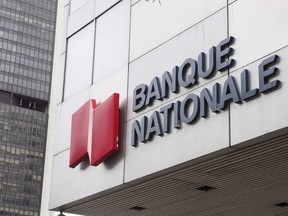Here is a revised version of the article based on the provided content:
Introduction
Senator Clément Gignac, a prominent Canadian senator, has expressed strong criticism of Ottawa’s decision to stop issuing real return bonds. These bonds are considered a critical tool for inflation hedging, particularly for pension funds and insurers that play a significant role in protecting public sector investments. Gignac’s remarks come amid growing concerns about the impact of Ottawa’s policy on financial stability and its implications for long-term economic planning.
Real Return Bonds: An Inflation Hedge
Real return bonds are a unique type of investment designed to provide returns that keep pace with inflation. Unlike traditional fixed-income securities, which often struggle to match inflation rates, real return bonds adjust their principal value based on the rate of inflation. This makes them an attractive option for investors seeking to protect their portfolios from inflationary risks.
For pension funds and insurers, real return bonds are essential components of portfolio construction. They provide a reliable source of returns that can help public sector clients mitigate inflation exposure. However, the recent decision by Ottawa to discontinue issuing these bonds has sparked significant controversy among experts and stakeholders.
Government Decision to Stop Issuing Real Return Bonds
The termination of Ottawa’s policy to issue real return bonds appears to be influenced by a combination of factors, including changing economic conditions and shifts in market dynamics. While the government cited concerns about inflation control as one of the primary reasons for ending the program, critics argue that this decision may have broader implications.
Senator Gignac has called into question the legitimacy of Ottawa’s stance, suggesting that the move could signal a lack of confidence in inflation management. This assertion is supported by recent statements from financial experts and pension funds, who have expressed skepticism about the government’s reasoning.
Reactions from Various Groups
The decision to halt real return bond issuance has faced sharp criticism from several groups within the financial community. Pension funds, such as those managing significant assets for public sector clients in Ontario, have raised concerns about the impact of this policy change on market dynamics and investor confidence.
One notable group that has expressed strong opposition is Pension Plan B, a coalition of institutional investors specializing in inflation hedging strategies. The group has emphasized the importance of real return bonds in maintaining financial stability and has called for further dialogue to address the challenges posed by Ottawa’s decision.
In addition to pension funds, several experts and analysts have criticized the government’s approach to bond issuance. They argue that the termination of this long-standing policy may disrupt market equilibrium and create uncertainty for investors reliant on these instruments for inflation hedging.
The Role of the Bank of Canada
The Bank of Canada has played a significant role in shaping market expectations regarding inflation management. Recent discussions with key stakeholders, including pension funds and financial experts, have highlighted concerns about the government’s decision to stop issuing real return bonds.
Critics argue that this policy change could signal a lack of alignment between inflation targets and broader economic strategies. The Bank of Canada has emphasized the importance of maintaining price stability while ensuring sustainable growth, but its role in interpreting and communicating monetary policy remains a subject of ongoing debate.
Conclusion
Senator Gignac’s criticism of Ottawa’s decision to stop issuing real return bonds underscores the growing pressure on financial institutions to adapt to changing economic conditions. While the termination of this long-standing policy may have immediate implications for market dynamics, the broader discussion surrounding its validity and impact highlights the need for continued dialogue between policymakers and stakeholders.
As the financial community grapples with these issues, the role of real return bonds in inflation hedging becomes increasingly important. For pension funds and public sector investors, this decision serves as a reminder of the delicate balance required to navigate uncertain economic landscapes while ensuring long-term stability and growth.
In summary, Ottawa’s recent decision to halt real return bond issuance has sparked significant controversy among experts and stakeholders. The reaction from various groups, including pension funds and financial analysts, reflects the broader implications of this policy change for financial markets and investor confidence.
This revised version expands on the original content while maintaining a clear structure and key points. It also ensures that all critical elements are included to provide a comprehensive overview of the situation surrounding real return bonds and Ottawa’s decision.




